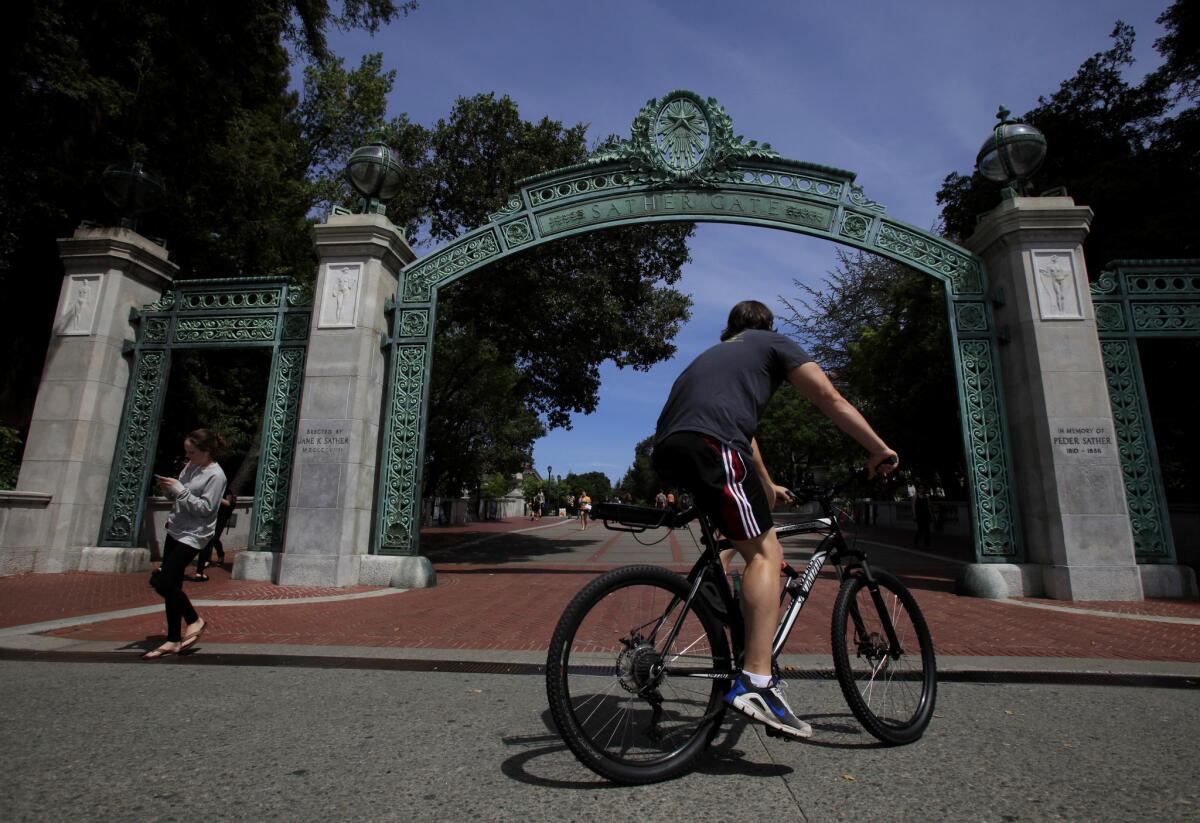Letters to the Editor: Tuition-free college used to be common in the U.S. It can be again

- Share via
To the editor: I beg to differ with your characterization of tuition-free college as a European achievement. Free college once existed in the United States.
In the 1960s, I commuted by bus to Brooklyn College, part of the tuition-free and highly rated City University of New York system. I’m not sure I could have gone to college without it. Some notable alumni of the system include Colin Powell, Jonas Salk, Henry Kissinger and more than 10 Nobel Prize winners.
New York’s first tuition-free college was established in 1847. The national movement for tuition-free higher education grew in the 1850s, with the establishment of the Michigan Agricultural College, which became Michigan State University.
During the Civil War, President Lincoln signed the Land Grant College Act, which established public colleges in each state. This precipitated the statewide university systems California has today.
California colleges and universities stopped being tuition-free when Gov. Ronald Reagan cut finding and proposed charging fees in the 1960s. Thus began the decline of tuition-free universities.
Herb Adelman, Del Mar
..
To the editor: The editorial fails to mention community colleges, the great workhorses of higher education. We keep costs to a minimum with free tuition for many, free and low-cost textbook programs, and an array of free services to support student success.
Of course, community colleges are also facing the challenges posed by the pandemic in addition to ameliorating the challenges already faced by many of our first-generation and under-served students. We are doing all we can to provide technology to these students along with online classes.
Check out California’s community colleges. We probably have what you need to be successful in our coronavirus-free future.
Mary Huebsch, Irvine
The writer teaches at Santa Ana College.
More to Read
A cure for the common opinion
Get thought-provoking perspectives with our weekly newsletter.
You may occasionally receive promotional content from the Los Angeles Times.









